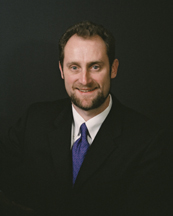By Lillian Hartgrove, State Board of Education Chairman
Special to the UCBJ
Anyone accused of sexual harassment, particularly in a university setting, should be summarily discharged. Right? Well, maybe even there, it’s a good idea to look before you leap. Consider the case of Michael Weinik, D.O. v. Temple University, Shivani Dua and Phillip Acevedo as described below.
Summary of Allegations from the Lawsuit Complaint. Dr. Weinik was an experienced and renowned physiatrist. He was a full professor at the Temple University medical school. He had trained hundreds of residents. He had worked with professional and Olympic athletic teams. And in fact, he had been named Interim Director of the Department.
One of his duties as Interim Director was apparently to find a way to replace the then-current Director, Dr. Ian Martin. It seems Dr. Martin got wind of this and was not happy about it. The allegation is that he recruited residents with whom he was friendly to bring false allegations of sexual harassment by Dr. Weinik. Certainly, allegations of harassment were leveled at Dr. Weinik.
The investigation team recommended to discharge Dr. Weinik.
After the investigation, a hearing committee was formed to make a final decision on the team’s recommendation. There were three on the committee. One person acted as both prosecutor and Chair of the Committee.
At the hearing, Dr. Weinik presented witnesses who testified that he did not commit the harassment of which he was accused. One of them testified specifically with respect to an occasion when Dr. Weinik was alleged to have improperly touched someone that the witness was present for the event and no such touching occurred.
One of the key accusers refused to sign a statement under oath, refused to sign an e-mail that contained allegations that the witness had related, and did not appear at the hearing. Another witness knowingly refused to appear at the hearing despite clearly having received the request to do so. In short, there were no witnesses at the hearing who supported any harassment allegation.
The committee voted to overturn the discharge recommendation. Even so, a medical school committee, none of whom had attended the hearing, voted to uphold the discharge.
Dr. Weinik sued for denial of due process, as well as for defamation and other similar torts. He sued the University as well as persons alleged to have helped perpetrate the falsehoods against him. The defendants attempted to get the case dismissed on the basis of statute of limitations and certain asserted privileges. The trial court denied the motion and the Court of Appeals agreed with the trial court. As of this writing the case is ongoing.
Lessons Learned? Since the case is from an academic setting it seems appropriate to consider what lessons astute HR professionals may glean from the circumstances.
An allegation of sexual harassment should not be considered automatic grounds for discharge. Rather, conducting a proper investigation before deciding on the proper response is critical.
Employers must be aware, and in proper circumstances must consider, that a report may be based on unlawful motivations. Some of these motivations may be clearly unlawful, such as a desire to have an employee discharged because of membership in a protected class, or for retaliatory reasons. Some may be for personal reasons that may or may not be unlawful.
To counter the possibility that the investigation is tainted by unlawful bias or inappropriate motivations of any kind, a wise employer will have the investigation conducted by the right people. The investigators should be properly trained, and should be independent of the situation. Often this will be someone from the HR team, but that is not automatic. There are times to utilize another person in the organization, or to bring in a third-party investigator.
Employers handling harassment allegations and investigations often face risks on more than one front.
- If the employee has legitimate concerns they should of course be addressed; failure to do so can lead to significant risks.
- On the other hand, if the stated concerns are bogus, or if the accused is mistreated in the process, other liability concerns arise. Being falsely accused of harassment and then railroaded via a shoddy or illegally-motivated process can lead to viable claims on behalf of the accused.
Conclusion. Of course, you have to address harassment concerns when they are raised. Prepare in advance by having well-trained team members to conduct investigations, as well as outside resources lined up so that help can be brought in when needed. Last but not least, when the investigation is done, consider whether it has been handled in a competent and independent manner. If so, the decision regarding the appropriate follow-up action is often clear.








